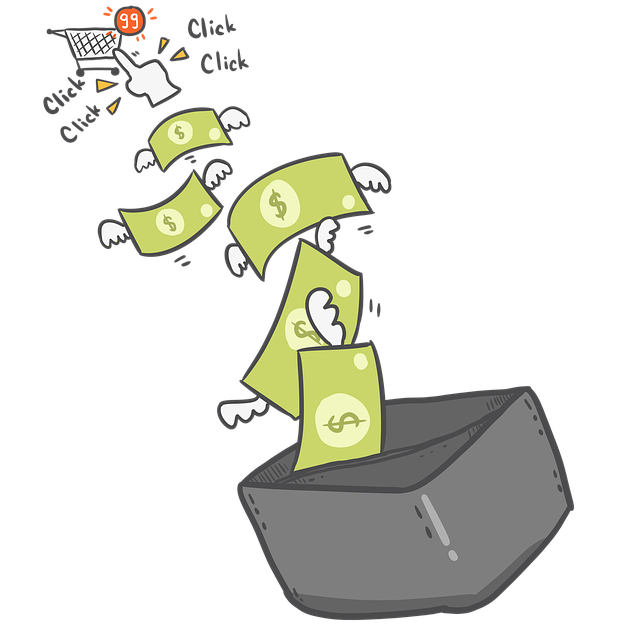Online casino payments involve complex fee structures varying by payment method, transaction size, and casino policies. E-wallets like PayPal often offer lower costs compared to traditional bank transfers. Casinos may charge percentages or set daily/monthly limits on free transactions. Gamers should research these variables, considering reputation and choosing methods that balance fees, speed, and security for optimal satisfaction; while operators minimize costs through diverse payment options, efficient processes, secure partnerships, and embracing emerging trends like instant payments and peer-to-peer transfers to remain competitive.
In the dynamic realm of online casinos, understanding payment fees is paramount for gamers. This comprehensive guide delves into the intricate world of Online Casino Payments, offering a detailed look at payment fees and their influencing factors. From deposit options to withdrawal charges, we explore what affects these costs. Armed with this knowledge, players can employ best practices to minimize expenses, ensuring a more cost-effective gaming experience.
- Understanding Online Casino Payment Fees: A Comprehensive Overview
- Factors Influencing Casino Deposit and Withdrawal Charges
- Best Practices for Minimizing Payment Costs in Online Casinos
Understanding Online Casino Payment Fees: A Comprehensive Overview

Online casino payments are a complex subject, with various fees and charges that can impact a player’s overall experience and bankroll. Understanding these payment fees is crucial for making informed decisions when choosing an online casino. Each transaction involves several costs, which differ based on the payment method, the amount being transacted, and the casino’s policies.
A comprehensive overview of these fees includes understanding deposit and withdrawal charges, currency conversion rates, and potential banking processing fees. For instance, popular e-wallet options like PayPal or Neteller might offer lower transaction fees compared to traditional bank transfers. Additionally, some casinos charge a small percentage for processing certain payment methods, while others may have daily or monthly limits on free transactions, encouraging players to consider alternative funding sources.
Factors Influencing Casino Deposit and Withdrawal Charges

When it comes to understanding online casino payments, several factors significantly influence deposit and withdrawal charges. These include the payment method chosen by the player, the amount being transacted, and the specific rules set by the individual casinos themselves. Different e-wallet options, credit cards, or bank transfers may have varying processing fees and minimum/maximum limits. For instance, while a swift credit card transaction might incur a 2-3% fee for online casino payments, an e-wallet service could offer more competitive rates with lower thresholds.
Moreover, the reputation of a casino in terms of smooth transactions and timely payouts also plays a role. Established online casinos often have better infrastructure to process payments efficiently, reducing potential delays or hidden charges that can impact user experience. Therefore, players should consider these factors when selecting their preferred payment method for online casino transactions.
Best Practices for Minimizing Payment Costs in Online Casinos

Minimizing payment costs is a key consideration for online casino operators aiming to enhance player satisfaction and maintain competitiveness in the market. One effective strategy involves offering a diverse range of payment methods, catering to various preferences and jurisdictions. By providing multiple options, casinos can reduce transaction fees associated with specific payment gateways and empower players to choose the most cost-effective method for their needs. For instance, cryptocurrency payments are gaining popularity due to lower processing fees compared to traditional credit cards or bank transfers.
Another best practice is to optimize deposit and withdrawal processes. Casinos should implement seamless onboarding procedures, ensuring quick and secure deposits while minimizing delays in processing withdrawals. Efficient internal systems and partnerships with reliable payment providers can significantly reduce costs related to transaction overhead and fraud prevention. Additionally, keeping an eye on the latest industry trends, such as instant payment solutions or peer-to-peer transfer services, can help online casinos stay ahead of the curve in terms of both player experience and cost savings.
Online casino payments involve a delicate balance between ensuring secure transactions and managing costs. By understanding the factors influencing payment fees, players can make informed decisions and employ best practices to minimize expenses. This comprehensive overview equips folks with the knowledge to navigate the world of online casino payments effectively, allowing them to focus on the thrill of the game rather than hidden charges.






